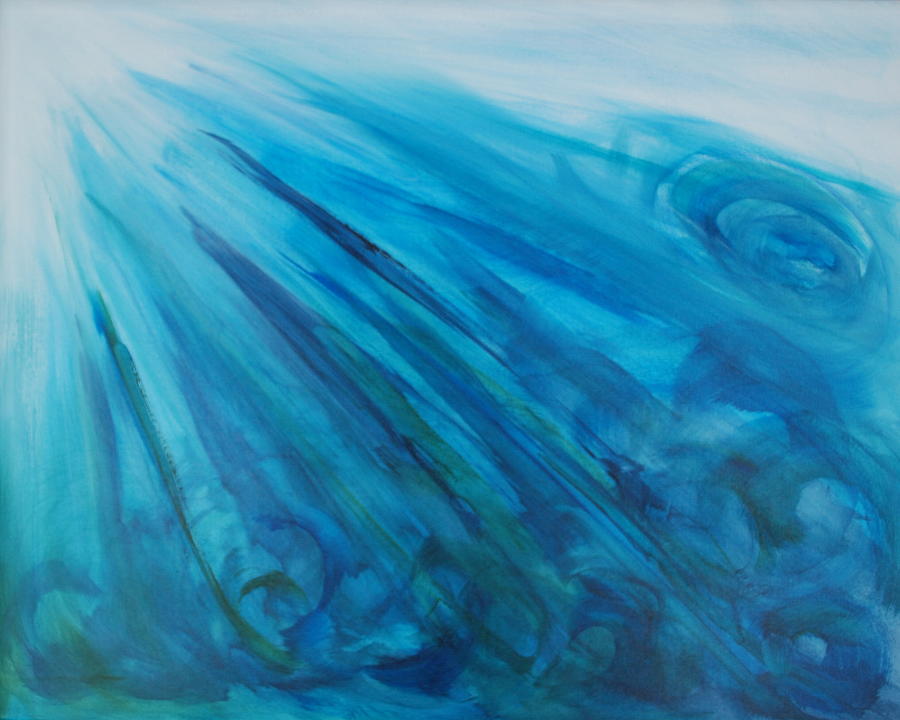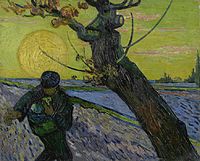The text preached at the Cathedral Eucharist on 30th July: I'm used to my sermon writing mind alighting on 'curious' connections, but yesterday I ended up re-reading sections of Mark Haddon's 'The Curious Incident of the Dog in the Night-Time'. I vividly remembered the scene where Christopher goes to the Underground for the first time - the noise and wind and waiting for silence.
Thinking about the Underground made me recall the 'thoughts for the day' posted on customer information white boards in ticket halls. So my train of thought went back to Solomon/wisdom, Paul/Holy Spirit and Jesus' parables - 'the kingdom of God is like...'. The texts were 1 Kings 3:5-12; Romans 8: 26-end; Matthew 13:31-33, 44-52.
I could feel a strong wind and a roaring and I closed my eyes and the roaring got louder and I groaned really loudly but I couldn’t block it out of my ears… and the roaring turned into a clattering and a squealing and it got slowly quieter and then it stopped and I kept my eyes closed… and the train started moving and it roared again… and it went into the tunnel at the end of the little station and it was quiet again… and the people were all walking into the tunnels that went out of the little station.
The London Underground: captured with the words of Christopher, the 15 year old narrator come detective at the heart of Mark Haddon’s The Curious Incident of the Dog in the Night-time.
The Underground: overwhelming for Christopher who has Asperger’s Syndrome - who’s never gone further than the end of his road.
The Tube: synonymous with heat, wind, noise, tunnels, escalators, interchanges, crowds, adverts, buskers, pushchairs, suitcases, jostling, armpits, swaying, headphones, iPhones and the Evening Standard - read and then discarded.
Perhaps we’ve become immune to sensory and social overload as we navigate by instinct: the discomfort of forced intimacy; grimly avoiding eye contact; standing on the right; rushing by on the left.
The beep of contactless payment or the frustration of ‘seek assistance’ and finally the thud and clunk of the barriers.
And then, often in italicised script or in block capitals, we see thoughts for the day posted on customer information whiteboards from from Angel to the Oval, Earls Court to London Bridge.
Or: The world is full of nice people, if you can’t find one, be one.
Words from John Constable: I never saw an ugly thing in my life… light, shade and perspective will make it beautiful.
Or Aristotle: Educating the mind without educating the heart is no education at all.
After the roaring, rushing, clattering and squealing there’s space to reflect on human life and character. What do we want - or need? Is it time to shift our perspective or enlarge our vision? How do we live wisely?
We hear of Solomon’s musings on such questions, not in the din of rush hour but in the depths of his sleep. Prompted by God’s desire to bestow a gift on him, he examines the changes in his personal situation.
First he recognises the great and steadfast love of God; then he acknowledges the way in which his father sought to walk faithfully in obedience to God’s love.
David may have stumbled and failed but he also repented and found forgiveness. His son is acutely aware the weight of mantel he’s taking on - of his youth, his inexperience and the enormity of the task ahead.
He knows that wealth, longevity or revenge over his enemies aren’t the answer. Good governance depended on an understanding mind and the capacity to discern what is good.
And that is the beginning of wisdom - to know our limitations, to turn to the love of God and to reflect honestly on ourselves and our situation.
Few are called upon to national leadership; each of us are called discern what is good. Whether it’s on Chapter or community committee; in family crises and budgeting priorities; in the mundane and the life changing; in the impression we make and the future we shape.
Sometimes life can be overwhelming - like Christopher’s physical perception of being on the underground platform: we feel at the mercy of forces around us, unsure of what’ll happen next; listening, make sense, responding. Oftentimes, we bide our time - waiting for people and noise to ebb away.
We understand the wind and roar of the tube; but it’s harder to know how to pray in the midst of weakness, adversity and indecision. Then we, like Christopher, groan audibly or inwardly; waiting for the quietness to descend.
Like us, Paul groans in weakness - like him we do not lose hope because we trust in God’s loving purposes. Romans is, in part, a clarion call to live wisely - trusting in the power of reconciling love God in Christ and abiding in the Spirit.
God’s great and steadfast love has been made known among us in Jesus Christ. In him, humanity is destined to be conformed to his image. We are called and restored to right relationship with God and each other. Through Jesus’ life, death and resurrection, we are justified: that is, made right with God. We share in this glorious inheritance with a large family.
This is our hope: nothing can separate us from the love of God in Christ Jesus our Lord. All this has been accomplished. We are to live wisely by embodying the implications of the depth of this love, the scope of its embrace, the personal implications and the demands of being part of this new creation.
Wiliam Blake: sketch of the Trinity
The Spirit helps us to pray: searching out all our fears, distress, vulnerability and hardship; knowing our hopes, loves, opportunities and our heart. The very groans of our hearts are accompanied by the sighs of the Spirit.
Our groans are translated into most intimate language of God’s breath.
Our groans are translated into most intimate language of God’s breath.
In the noise of our world, and in the sighs of our hearts, we are to have wise and discerning minds. We are to pay deep attention to God’s steadfast love and to the movement of God’s Spirit in our own situations.
And then, perhaps, we will see something of the kingdom of heaven on earth.
Like the thoughts on the underground, Jesus’ parables are brief, puzzling and memorable. No one image captures what the kingdom of heaven is like; each story educates our heart and shapes our character. Each scenario changes our perspective - enabling us to see beauty in light and shade. Parables speak of growth and opportunity in every situation, however inauspicious.
Jesus enlarges our vision through seeds, branches, yeast and flour: the insignificant things which harbour potential for growth, refuge, nourishment in and for the world.
He educates our hearts with a kingdom-vision of joy and delight; which demands our whole-hearted commitment, giving all that we have to make known the love of God. A love that will not let us go.
Jesus shifts our perspective: casting a net which reaps an abundant harvest; reminding us as Canon Andrew did last week of the difference between God’s merciful judgement and the limitations of our judgementalism.
To be trained for this kingdom, means valuing the old and new; what is given and what is found in our pursuit of God’s loving wisdom.
In this Eucharist, let us pray ‘thy kingdom come: that in the noise we might find stillness, as the Spirit helps us in our weakness; that nothing will separate us from God’s love in Christ Jesus; that we, his body, may grow in love, mercy and wisdom.
© Julie Gittoes 2017












